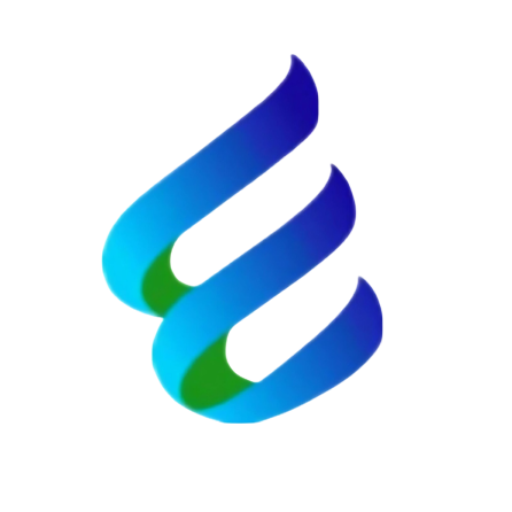A proprietorship business is one of the simplest forms of business entities in India, where the business and the owner are legally the same entity. This structure is commonly chosen for its simplicity and ease of operation. However, proprietorships must adhere to specific accounting and bookkeeping regulations to ensure legal compliance and operational efficiency.
1. Laws Governing Proprietorships
In India, proprietorship businesses are primarily governed by the following laws:
- Income Tax Act, 1961: Governs the taxation of income, including accounting and reporting requirements.
- Goods and Services Tax (GST) Act, 2017: Regulates GST compliance for businesses engaged in the supply of goods and services.
- Companies Act, 2013: While this act primarily governs companies, some provisions may apply if the proprietorship has incorporated as a company.
- The Indian Contract Act, 1872: Governs contracts and business transactions.
- The Transfer of Property Act, 1882: Regulates the transfer of property used in business.
- The Negotiable Instruments Act, 1881: Governs transactions involving negotiable instruments like cheques.
2. Statutory Norms of Bookkeeping and Accounting
a. Accounting Standards
- Indian Accounting Standards (Ind AS): Although Ind AS primarily applies to companies, proprietorships must adhere to general accounting principles that are consistent with the standards set for companies.
b. Books of Accounts
Proprietorships are required to maintain the following mandatory books of accounts:
- Day Book or Journal: Records daily transactions.
- Cash Book: Records all cash transactions.
- Ledger: A collection of all accounts, categorized into debits and credits.
- Purchase Register: Records all purchase transactions.
- Sales Register: Records all sales transactions.
- Stock Register: Maintains details of inventory and stock movements.
- Bank Book: Records all bank transactions.
- Fixed Asset Register: Details the assets owned by the business.
c. Mode of Accounting
- Accrual Basis: Most businesses use the accrual basis of accounting, where transactions are recorded when they occur, regardless of when cash is received or paid.
- Cash Basis: Smaller proprietorships may use the cash basis of accounting, recording transactions only when cash changes hands.
- ERP Systems: Utilization of ERP (Enterprise Resource Planning) systems with audit trails can streamline accounting processes, enhance accuracy, and ensure compliance. ERP systems help in managing transactions, generating financial reports, and maintaining audit trails for all accounting entries.
3. Income Tax Laws for Accounting
a. Income Tax Act, 1961
- Presumptive Taxation Scheme: Under sections 44AD, 44AE, and 44ADA, proprietorships with a turnover below specified limits can opt for presumptive taxation schemes, simplifying tax calculation.
- Books of Accounts: Proprietors are required to maintain books of accounts if their income exceeds the prescribed limits. These accounts should be audited if the turnover exceeds ₹1 crore (or ₹2 crore if opting for presumptive taxation).
- Income Declaration: All income must be declared, and expenditures must be substantiated with proper documentation.
4. GST Laws for Accounting and Bookkeeping
a. Goods and Services Tax Act, 2017
- Registration: Proprietorships with a turnover exceeding ₹40 lakhs (₹20 lakhs for North-Eastern states) must register for GST.
- Invoicing: GST-compliant invoices must be issued for every supply of goods and services.
- GST Returns: Regular filing of GST returns (GSTR-1, GSTR-2, GSTR-3B) is mandatory. Businesses must reconcile their sales and purchase data to ensure accurate GST compliance.
- Input Tax Credit (ITC): Proper documentation is required to claim ITC on purchases.
5. Income Tax Compliances for Accounting and Bookkeeping
- Annual Filing: Proprietorships must file income tax returns annually, providing details of income, expenses, and taxes paid.
- Tax Audits: A tax audit is mandatory if the turnover exceeds ₹1 crore (or ₹5 crore for certain types of businesses). The audit report must be filed along with the income tax return.
- Advance Tax: Proprietors must pay advance tax if their tax liability exceeds ₹10,000 in a financial year.
6. Import and Export Regulations
- Import Export Code (IEC): Required for businesses involved in import or export activities. The IEC must be obtained from the Directorate General of Foreign Trade (DGFT).
- Customs Compliance: Proper documentation, including invoices, shipping bills, and customs declarations, must be maintained for import and export transactions.
- GST on Imports: GST on imports must be paid, and proper records must be maintained to claim input tax credits.
7. Other Statutory Laws
- Employment Laws: Compliance with labor laws, including payment of wages and employee benefits, is mandatory.
- Environmental Regulations: Depending on the nature of business, environmental regulations may apply.
Audit Provisions
- Audit Requirement: Proprietorships are subject to audit requirements if their turnover exceeds ₹1 crore. The audit must be conducted by a Chartered Accountant, and the audit report must be submitted along with the income tax return.
Conclusion
Proprietorship businesses in India must adhere to various accounting and bookkeeping regulations to ensure legal compliance and operational efficiency. Maintaining proper books of accounts, following income tax and GST laws, and complying with import-export regulations are crucial for smooth business operations. Utilizing ERP systems with audit trails can greatly enhance the accuracy and efficiency of accounting processes.
For comprehensive accounting and bookkeeping services tailored to your business model—whether manufacturing, service, or trading—contact WynSwell. We offer expert services to ensure your business meets all statutory requirements efficiently and accurately.












